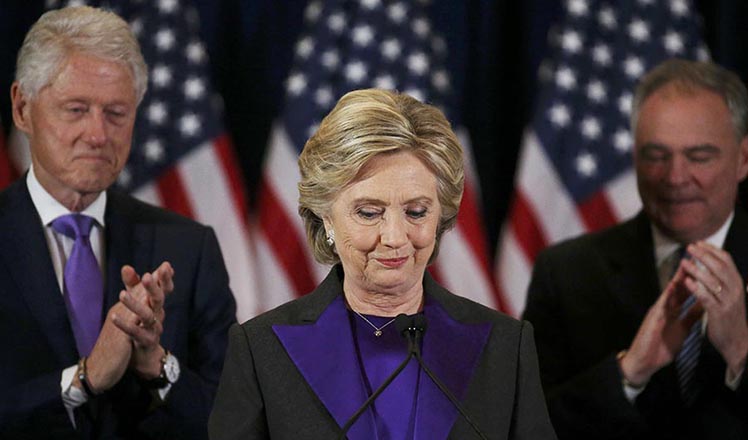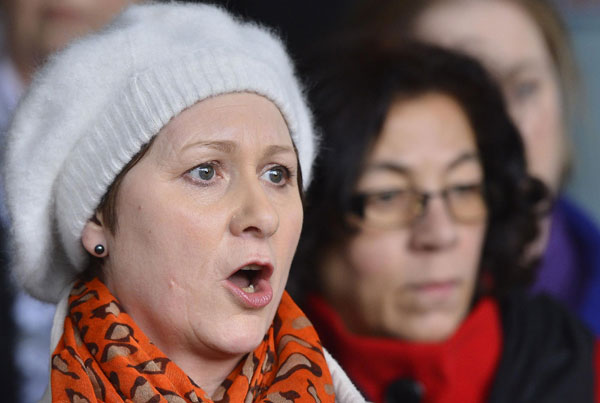Britain's health service hit by hospital scandal
Updated: 2013-02-07 10:01
(Agencies)
|
||||||||
LONDON - The deaths of hundreds of hospital patients, left without food or water in filthy conditions, exposed an urgent need to change the culture of Britain's National Health Service (NHS), a report said on Wednesday.
Between 400 and 1,200 patients are estimated to have died needlessly at Stafford Hospital in central England between January 2005 and March 2009 in one of the worst scandals to hit the NHS since it was founded in 1948.
"There were patients so desperate for water that they were drinking from dirty flower vases," Prime Minister David Cameron told parliament in a statement on the report.
Describing events at Stafford Hospital as "a despicable catalogue of clinical and managerial failures", Cameron apologised to all the families affected on behalf of the government and the country.
The author of the 3,000-page report, lawyer Robert Francis, said: "This is a story of appalling and unnecessary suffering of hundreds of people."
"They were failed by a system which ignored the warning signs and put corporate self-interest and cost control ahead of patients and their safety," Francis said in a televised statement as his report was published.
The NHS, which provides medical care for free at the point of delivery, is an institution so dear to British hearts that it was proudly showcased to the world in the opening ceremony of the Olympic Games in London last summer. The harrowing details of what happened at Stafford have shocked the nation.
"Elderly and vulnerable patients were left unwashed, unfed and without fluids. They were deprived of dignity and respect. Some patients had to relieve themselves in their beds when they were offered no help to get to the bathroom," said Francis.
He said some patients were left in excrement-stained sheets and some who could not eat or drink without help did not receive it. Medicines were prescribed but not given.
"Many will find it difficult to believe that all this could occur in an NHS hospital," he said.
- A foreigner's guide to Singles Day shopping spree
- China jails 49 for catastrophic Tianjin warehouse blasts
- Taobao village gets ready for shopping spree on 11/11
- Parents leave behind 9 million children in China
- 60% Chinese rich people plan to buy house overseas, US most preferred
- Lovable cub Pandora recalled 78 years later

 Clinton concedes election, urges open mind on Trump
Clinton concedes election, urges open mind on Trump
 Places to enjoy golden gingko tree leaves
Places to enjoy golden gingko tree leaves
 Taobao village gets ready for shopping spree on 11/11
Taobao village gets ready for shopping spree on 11/11
 Overhead bridge rotated in East China's Shandong
Overhead bridge rotated in East China's Shandong
 The 75th anniversary of Red Square parade celebrated
The 75th anniversary of Red Square parade celebrated
 Trump trumps Hillary: Cheers, tears and shock
Trump trumps Hillary: Cheers, tears and shock
 Bi-level bicycle storage in East China's Hangzhou
Bi-level bicycle storage in East China's Hangzhou
 In pics: Dine deep underground in a cave
In pics: Dine deep underground in a cave
Most Viewed
Editor's Picks

|

|

|

|

|

|
Today's Top News
No environmental shortcuts
US election rhetoric unlikely to foreshadow future US-China relations
'Zero Hunger Run' held in Rome
Trump outlines anti-terror plan, proposing extreme vetting for immigrants
Phelps puts spotlight on cupping
US launches airstrikes against IS targets in Libya's Sirte
Ministry slams US-Korean THAAD deployment
Two police officers shot at protest in Dallas
US Weekly

|

|








